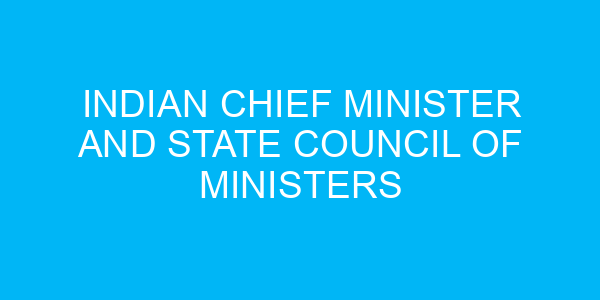116. The Chief Minister is responsible for maintaining a harmonious relationship with the central government and other states. This signifies the Chief Minister’s role as the:
a) Chief diplomat
b) Chief legislator
c) Chief judge
d) Chief administrator
117. The Chief Minister can recommend the appointment of the Advocate General, who is the chief legal advisor to the state government, to the:
a) Governor
b) President of India
c) Chief Justice of the High Court
d) Legislative Assembly
118. The Chief Minister can recommend the appointment of members to various state-level statutory and constitutional bodies, such as the State Human Rights Commission and the State Public Service Commission. This signifies the Chief Minister’s role in:
a) Ensuring the independence and impartiality of such bodies
b) Controlling and influencing the functioning of such bodies
c) Strengthening the federal structure of the country
d) Promoting diversity and inclusion in state institutions
119. The Chief Minister is responsible for maintaining cordial relations with the opposition parties and engaging in constructive dialogues to address issues of public importance. This signifies the Chief Minister’s role as a:
a) Consensus builder
b) Political strategist
c) Legislative leader
d) Public representative
120. The Chief Minister is responsible for representing the state’s interests and concerns in the National Development Council meetings, which discuss matters related to national planning and policy formulation. This signifies the Chief Minister’s role as a:
a) National-level decision-maker
b) International-level diplomat
c) Regional-level coordinator
d) Local-level administrator



